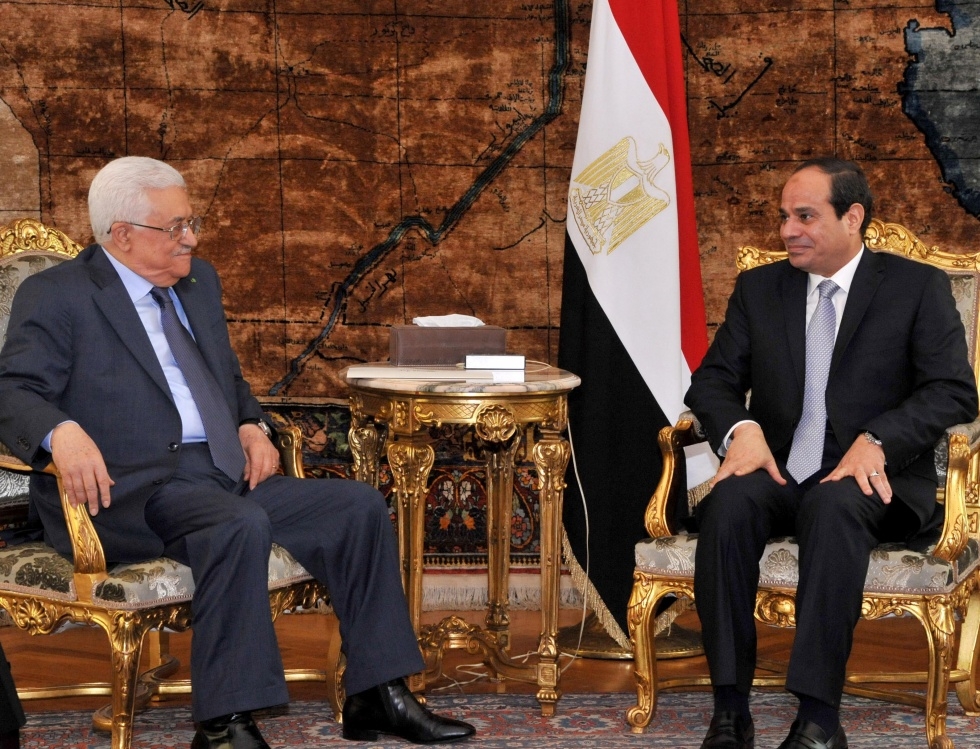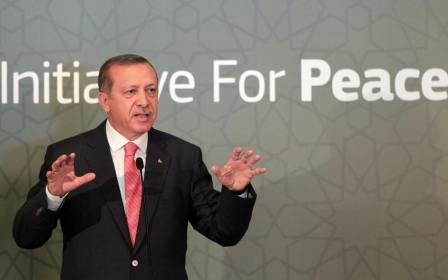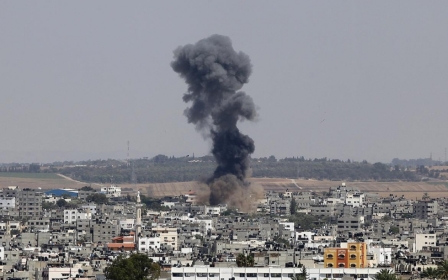Gaza ground invasion follows unfruitful diplomacy

Israel will expand the ground invasion it has launched in Gaza, Prime Minister Benjamin Netanyahu said Friday at the opening of a convention in Tel Aviv.
Israel "chose to embark on a ground incursion after having exhausted all other possibilities," Netanyahu said in a statement made at the opening of a ministerial convention in Tel Aviv.
"We have no guarantee of one hundred percent success, but we are doing all we can to achieve the most," he said.
Israel's land invasion comes in the wake of unfruitful ceasefire negotiations in Cairo where Israeli and Hamas delegations, Palestinian President Mahmoud Abbas and Quartet special envoy Tony Blair descended earlier this week.
Although reporters were given the impression that an Israeli operational expansion would be discussed on Friday, the Israeli cabinet had reportedly already approved the ground operation as early as Tuesday night even before the country's delegation arrived in Egypt for talks, a senior Israeli official told Haaretz.
The ground operation was delayed to give the Egyptians another opportunity to negotiate a ceasefire, Haaretz reported.
But how far Egypt was able to accomplish in the negotiations and even whether the initiative was actually led by the Egyptians has been called into question. According to an Arabi21 report, the initiative - for which Hamas, Islamic Jihad and the Popular Resistance Committees say they were initially excluded and which Abbas approved - was created by the Israelis and Tony Blair.
The proposal was published against US wishes in order to shake a rival proposal from Qatar where Hamas' political bureau chief Khaled Meshaal lives, a source told MEE this week.
A senior Hamas official also told MEE last weekend that the group no longer considers Egypt an honest broker in a peace deal and that it would only negotiate a truce through Qatar or Turkey.
Tensions between the group and Egypt have risen since the ouster of President Mohammed Morsi and the Muslim Brotherhood administration last July, a move which has also put strains on Egypt's relationship with Qatar and Turkey that both backed Morsi.
As the talks occurred in a Cairo hotel on Thursday, Egypt's Foreign Minister Sameh Shukri told reporters that his country's proposal was the only viable way to stop "an intolerable humanitarian situation" in Gaza.
"The only way to protect the people and to avoid additional bloodshed is acceptance of the plan," Shukri said, expressing frustration that 'Palestinian factions' did not share Egypt's "desire . . . to protect the Palestinian people in Gaza."
Hamas reportedly presented five demands in Cairo on Thursday: the opening of all crossings between Israel and the Gaza Strip, 24-hour opening of the Rafah crossing with an international guarantee that it will not be closed; naval access in Gaza; permission for Gaza residents to pray at Al-Aqsa Mosque in Jerusalem; release of prisoners freed in the Gilad Shalit swap and then re-arrested during Israel's operation to find the bodies of three kidnapped and murdered Israeli teenagers; and improved conditions for Palestinian prisoners in Israeli jails.
Israel, on the other hand, has demanded that Hamas stop launching rockets into the country, but without changing the status quo in Gaza.
Both sides left Cairo empty-handed on Thursday.
"Any initiative that doesn't stop the aggression and end the siege on Gaza would not be acceptable to our people," Hamas' Khaled Meshaal told Al-Monitor on Thursday. "That's why the Egyptian initiative was rejected."
The Israeli delegation returned from Cairo pessimistic about the chance of a ceasefire, apparently saying Hamas was "playing a totally different ball game", and plans for the ground invasion started to take shape, Haaretz reported.
As Israel moved forward with its land invasion, Egypt's foreign minister accused Turkey, Qatar and Hamas of undermining his country's negotiating efforts.
"Had Hamas accepted the Egyptian initiative, at least 40 Palestinians souls would have been saved," Shurkri said, Egypt's state news agency MENA reported.
New MEE newsletter: Jerusalem Dispatch
Sign up to get the latest insights and analysis on Israel-Palestine, alongside Turkey Unpacked and other MEE newsletters
Middle East Eye delivers independent and unrivalled coverage and analysis of the Middle East, North Africa and beyond. To learn more about republishing this content and the associated fees, please fill out this form. More about MEE can be found here.




